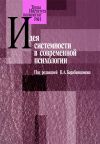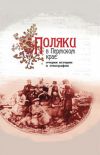Текст книги "Идея совершенства в психологии и культуре"

Автор книги: Галина Иванченко
Жанр: Общая психология, Книги по психологии
Возрастные ограничения: +12
сообщить о неприемлемом содержимом
Текущая страница: 22 (всего у книги 22 страниц)
Clesak P. America’s Quest For The Ideal Self. Dissent and Fulfillment in the 60s and 70s. N.Y.-Oxford: OUP, 1983.
Coan R. The Optimal Personality: An Empirical and Theoretical Analysis. London: Routledge & Kegan Paul, 1974.
Coan R. Self-Actualization and the Quest for the Ideal Human // Jones A., Crandall R. (Eds.). Handbook of self-actualization. [Special issue.] Journal of Social behavior and Personality. 1991. Vol. 6. № 5. P. 127–136.
Cognitive approaches to obsessions and compulsions: theory, assessment, and treatment / Ed. by Randy O., Frost G.S. Amsterdam; N.Y.: Pergamon, 2002.
Conee E. The Nature and the Impossibility of Moral Perfection // Philosophy and Phenomenological Research. 1994. Vol. 54, № 4 (Dec.). P. 815–825.
De L’Еducation chretienne des enfants selon les maximes de l’еcriture Sainte et les instructions des Saints Peres de l’Eglise. P.: Prome, 1667.
Dittmar H. 2005: http://www.backchannelmedia.com/newsletter/articles/2355/Compulsive-Shopping-Carries-a-Heavy-Price
Dixon P.N., Elias S.F. Response preference within the Rotter I-E scale: Perceived locus of control of self, average, and ideal others // Perceptual and Motor Skills. 1979. Vol. 49. P. 631–634.
Drigotas S.M. The Michelangelo Phenomenon and Personal Well-Being // Journal of Personality. 2002. Vol. 70, № 1. P. 59–77.
Eco U. Opera Aperta. Milano: Bompiani, 1962.
Emmons R.A. Personal strivings: An approach to personality and subjective well-being // Journal of Personality and Social Psychology. 1986. Vol. 51. P. 1058–1068.
Emmons R.A. Striving and feeling: Personal goals and subjective well-being // The psychology of action: Linking cognition and motivation to behaviour / Gollwitzer P.M., Bargh J.A. (Eds.). N.Y.: Guilford Press, 1996. P. 313–337.
Enns M.W., Cox B., Clara I. Adaptive and maladaptive perfectionism. Developmental origins and association with depression proneness // Personality and Individual Differences. 2002. 33. P. 921–935.
Fitzgerald J. T., White L.M., trans. and ed. The Tabula of Cebes. Chico (Calif.): Scholars, 1983.
Flett G.L., Hewitt P.L. Perfectionism and maladjustment: An overview of theoretical, definitional, and treatment issues // Flett G.L., Hewitt P.L. (eds.). Perfectionism: Theory, Research, and Treatment. Washington: APA, 2002. P. 5–32.
Flett G.L., Hewitt P.L., Oliver J.M., Macdonald S. Perfectionism in children and their parents: A developmental analysis // Flett G.L., Hewitt P.L. (eds.) Perfectionism: Theory, Research, and Treatment. Washington: APA, 2002. P. 89–132.
Flett G.L., Besser A., Davis R.A., Hewitt P.L. Dimensions of Perfectionism, Unconditional Self-Acceptance, and Depression // Journal of Rational-Emotive and Cognitive-Behavior Therapy. 2003. Vol. 21, № 2. P. 119–138.
Fleury C. Traite du choix et de la methode des etudes. P.: Emery, Suagrain, Martin, 1722.
Flew N. The Idea of Perfection in Christian Theology. N.Y.: Oxford University Press, 1934.
Fredriksen P. Paul and Augustine: Conversion Narratives, Orthоdox Traditions, and the Retrospective Self // Journal of Theological Studies. 1986. n.s. 37. P. 3–34.
Frost R.O., Marten P., Lahart C., Rosenblate R. The dimensions of perfectionism // Cognitive Therapy and Research (Historical Archive). 1990 (October). Vol. 14, № 5. P. 449–468.
Frost R.O. The development of perfectionism: A study of daughters and their parents // Cognitive Therapy and Research. 1991. № 15(6). P. 469–489.
Gauchhwal B.S. The concept of perfection in the teachings of Kant and the Gita // Philosophy East and West. 1962. Vol. 12, № 2(Jul.). P. 99–124.
Gaventa B.R. From Darkness to Light: Aspects of Conversion in the New Testament. Philadelphia: Fortress, 1986.
Gilman S.L. Making the Body Beautiful. A Cultural History of Aesthetic Surgery. Princeton and Oxford: Princeton Univ. Press, 1999.
Golitsyn G.A. «High» Art and «Low» Art: The Systemic Role of an Elite Subculture // Journal of Russian and East European Psychology. May-June 2000. Vol. 38, № 3. P. 28–44.
Graham A. Sage, Saint and Sophist: Holy Men and Their Associates in the Early Roman Empire. London: Routledge, 1994.
Hadot I. Arts liberaux et philosophie dans le pensee antique. P.: Etudes augustiniennes, 1984.
Halliwell E., Dittmar H., Howe J. The impact of advertisements featuring ultra-thin or average-size models on women with a history of eating disorders // Journal of community & applied social psychology. 2005. Vol. 15, № 5. P. 406–413.
Hamachek D.E. Psychodynamics of normal and neurotic perfectionism // Psychology. 1978. Vol. 15. P. 27–33.
Hannah T.E. Perception of internal-external control in ideal and non-ideal others as a function of one-s own I-E score // Perceptual and Motor Skills. 1973. Vol. 37. P. 743–746.
Hausherr I. Direction spirituelle en Orient autrefois. Roma: Pont. Institutum Orientalium Studiorum, 1955.
Hengel М. Judaism and Hellenism: Studies in their Encounter in Palestine during the Early Hellenistic Period. 2 vols. Minneapolis: SCM, 1974, 1981. Vol. 1. P. 255–261.
Hijmans B.L. Askesis: Notes on Epiсtetus’ Educational System. Assen: Van Gorcum, 1959. P. 55–63, 70–72.
Hyldahl N. Philosophie und Christentum: Eine Interpretation der Einleitung zum Dialog Justins. Copenhagen: Munksgaard, 1966.
Inglehart R. Culture Shift in Advanced Industrial Society. Princeton (NJ): Princeton University Press, 1990.
Iser W. Der Akt des Lesens: Theorie asthetischer Wirkung. Munchen: Fink, 1976.
Iser W. The Act of reading: A Theory of Aesthetic response. Baltimore; London: The John Hopkins UP, 1978.
Kierkegaard S. Concluding Unscientific Postscript. Princeton; N.Y.: Princeton University Press, 1941.
Kraus Th.J. «Uneducated», «Ignorant», or even «Illiterate»? Aspects and Background for An Understanding of AGRAMMATOI (and IDIOTAI) in Acts 4.13 // New Testament Studies. 1999. 45. P. 434–449.
Krebs U. Erziehung in Traditionalen Kulturen. Quellen und Befunde aus Afrika, Amerika, Asien und Australien. Berlin: reimer, 2001.
Kriger L. The German Idea of Freedom. Boston: Beacon Press, 1957.
Landsman T., Landsman M.S. The Beautiful and Noble Person: An Existentialist-Phenomenological View of Optimal Human Functioning // Jones A., Crandall R. (Eds.). Handbook of self-actualization. [Special issue.] // Journal of Social behavior and Personality. 1991. Vol. 6, № 5. P. 61–74.
Lapan L., Patton J.J. Self-psychology and the adolescent process: Measure of pseudoautonomy and peer-group dependence // Journal of Counselling Psychology. 1986. Vol. 33. P. 136–142.
Lavelle L. Les puissances du moi. P.: Flammarion, 1948.
Levine L. W. Highbrow/Lowbrow: The Emergence of Cultural Hierarchy in America. Cambridge (MA): Harvard University Press, 1988.
Lipsilz G. Time Passages: Collective Memory and American Popular Culture. Minneapolis, MN: University of Minnesota Press, 1990
Lynes R. The Tastemakers. N.Y.: Harper, 1954.
Maddi S.R. Creating Meaning Through Making Decisions // Wong P.T.P., Fry P.S. (еds.) The Human Quest For Meaning: A Handbook of Psychological research and Clinical Applications. Mahwah (NJ): Lawrence Erlbaum Associates, 1998. P.3–26.
Malherbe A. J. The Cynic Epistles: A Study Edition. Missoula: Scolars Press, 1977.
Mallinckrodt B., Wei M. Attachment, social competences, interpersonal problems, and psychological distress // Mallinckrodt B. (ed.) Expanding applications of adult attachment theory: Coping assets and deficits. Toronto: APA, 2003.
Maritain J. Creative Intuition in Art and Poetry. L.: Harvill Press, 1954.
Maslow A.H. Motivation and Personality. N.Y.: Harper and Bros., 1970.
Meeks W.A. The First Urban Christians: The Social World of the Apostle Paul. New Haven: Yale University Press, 1983.
Merriam-Webster Collegiate Dictionary. N.Y.: Merriam-Webster, 1996.
Nock A.D. Conversion: The Old and the New in Religion from Alexander the Great to Augustine of Hippo. L.: Oxford UP, 1933.
Outreman Ph. d’, De la Compagnie de Iesus. Le Pedagogue chrestien, ou la maniere de vivre Chrestiennement. Tiree de la saincte Ecriture & des Saincts Peres, confirmee, & esclaircie par Raisons similitudes & Histoire. P.: Le Gras, 1656.
Pacht A.R. Reflections on perfection // American Psychologist. 1984. Vol. 39. P. 386–390.
Pack R. A. (ed.) Artemidori Daldiani Oneirocriticon libri V. Leipzig: B.G. Teubner, 1963.
Pargament K.I., Park C.L. Merely defense? The variety of religious means and ends // Journal of Social issues. 1995. Vol. 51. P. 13–32.
Parker W.D. An empirical typology of perfectionism in academically talented children // American Educational Research Journal. 1997. 34:3. P. 545–562.
Peterson R.A., Kern R.M. Hard-Core and Soft-Shell Country Music Fans // Journal of Country Music. 1995. 17(3). P. 3–6.
Perfect Body: Korperkult, Schlankheitswahn und Fitnessrummel. Waldrich; Koln: PapyRossa Verl.-Ges., 2004.
Perfectionism: Theory, Research, and Treatment / Ed. by G.L. Flett, P.L. Hewitt. N.Y.: American Psychological Association (APA), 2002.
Powell J. Perfection as a cosmological postulate: Aristotle and Bruno // The Philosophical Review. 1935. Vol. 44. № 1 (Jan.). P. 57–68.
Rawls J. A. Theory of Justice. Cambridge: Harvard University press, 1971.
Rice K.G., Mirzadeh S.A. Perfectionism, attachment, and adjustment // Journal of Counselling Psychology. 2000. 47. P. 238–250.
Riemann H. Handbuch der Musikgeschichte. Bd. 1, T. 1. Leipzig, 1919.
Roberts R. The New Man and the Divine Society. N.Y.: Macmillan, 1926.
Rotter J.B. Social Learning and Clinical Psychology. N.Y.: Praeger, 1954.
Rо..ttgers H. Spuren der Macht: Begriffsgeschichte und Systematik. Freiburg: Alber, 1990.
Sanders J.T. Schismatics, Sectarians, Dissidents, Deviants: The First One Hundred Years of Jewish-Christiian Relations. L.: SCM, 1993.
Sell J. The Knowledge of the Truth – Two Doctrines: The Book of Thomas the Contender (CG II,7) and the False Teachers in the Pastoral Epistles. Frankfurt am Main; Bern: Lang, 1982.
Serrano M. C.G. Yung and Hermann Hesse. L.: Routledge, 1966.
Shorter E. Women’s Bodies.New Bruswick: Transaction Publ., 1991.
Siegel S., Allow L. Interpersonal perceptions and consequences of depressive-significant other relationships: A naturalistic study of college roommates // Journal of Abnormal Psychology. 1990. Vol. 99. P. 361–373.
Sleigh R. Expression, perception and harmony in the discourse // The Southern Journal of Philosophy: Spindel Supplement. 1983. P. 75–101.
Smith R.G. The New Man: Christianity and Man’s Coming of Age. N.Y.: Harper & Bros., 1956.
Sontag S. Against Interpretation and Other Essays. N.Y.: Farrar, Straus, and Giroux, 1966.
Sternberg R. Implicit theories of intelligence // Journal of Personality and Social Psychology. № 49. P. 607–627.
Storr A. Solitude. A Return to the Self. N.Y.: The Free Press, 1988.
Suzuki D.T. Essays in Zen Buddhism. L.: Rider, 1934.
Tsanov R. The Notion of Perfection // The Philosophical Review. 1940. Vol. 49, № 1 (Jan.). P. 25–36.
Varet A. De L’Еducation chretienne des enfants selon les maximes de l’еcriture Sainte et les instructions des Saints Peres de l’Eglise. Bruxelles: Coppens, 1669.
Wagner W.J. The Search of the Market’s Moral Limits: Liberalism, Perfectionism, and «The Bad Man» in Christian Perspective // Journal of Law and Religion. 1994–1995. Vol. 11, № 2 P. 535–549.
Wei M., Mallinckrodt B., Russell D.W., Abraham W.T. Maladaptive perfecitonalism as a mediator and moderator between adult attachment and depressive mood // Journal of Counselling Psychology. 2004. 51:2. P. 201–212.
Wilensky H.L. Mass Media and Mass Culture: Interdependence or Independence? // American Sociological Review. 1964. 29. Р. 173–197.
Willets W. Christian education of children: being the substance of two sermons on Tit.1.6.; with familiar dialogues between a parent and his child, on the plain laid down in these discourses. L.: s.ed., 1750.
Правообладателям!
Это произведение, предположительно, находится в статусе 'public domain'. Если это не так и размещение материала нарушает чьи-либо права, то сообщите нам об этом.








































